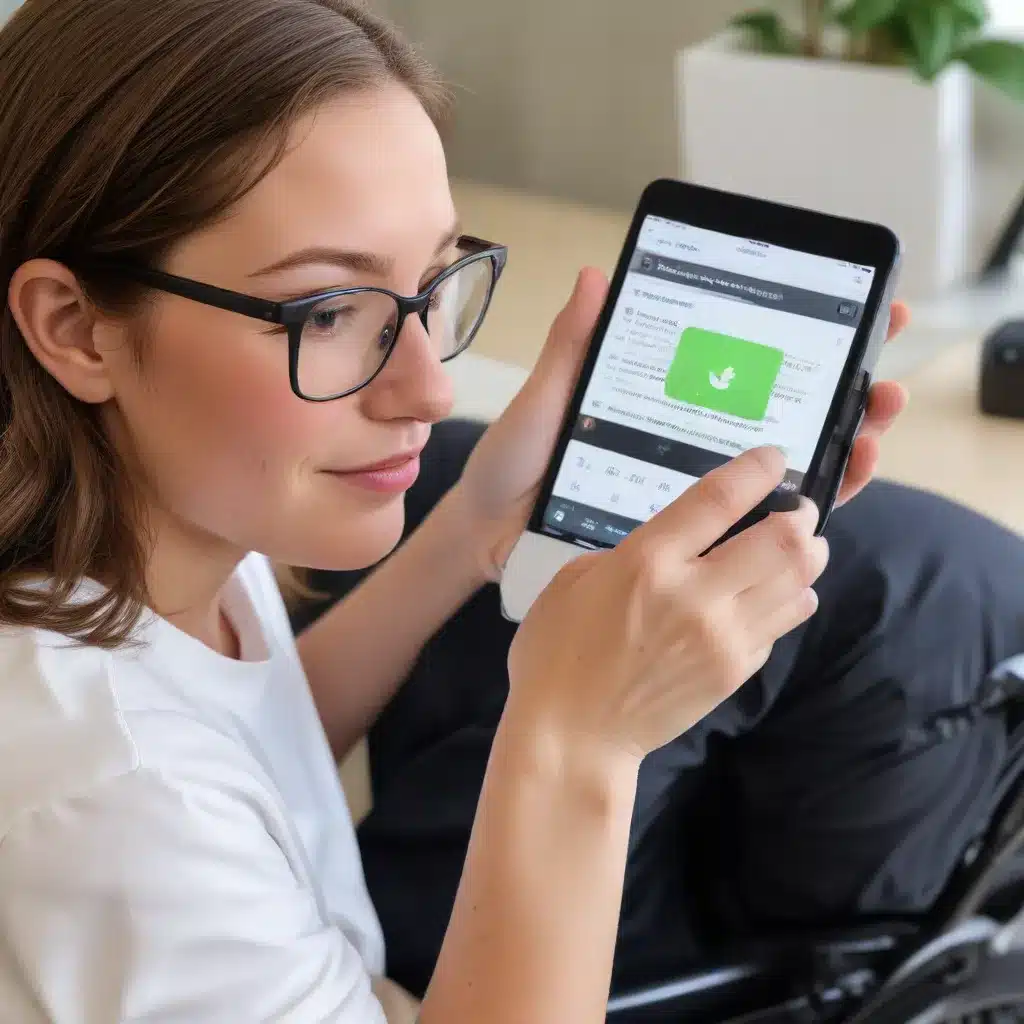
In today’s technology-driven world, accessibility is more crucial than ever. Apple has long been at the forefront of this movement, continuously pushing the boundaries to create inclusive experiences for all users. From those with visual, auditory, or mobility challenges to individuals with cognitive differences, Apple’s accessibility features aim to empower everyone to embrace the full potential of their devices.
Apple’s Accessibility Offerings
At the core of Apple’s accessibility initiatives lies a deep commitment to inclusive design. The company’s philosophy is to weave accessibility seamlessly into the fabric of their hardware and software, ensuring that users of all abilities can enjoy a seamless and enriching experience.
Built-in Accessibility Features
Apple’s devices come packed with a range of built-in accessibility features that cater to diverse needs. VoiceOver, a powerful screen reader, enables users with visual impairments to navigate their devices, read text, and interact with apps effortlessly. For those with hearing challenges, the Communication Accessibility feature serves as a helpful tool, facilitating sign language translation and real-time captioning.
Customizable Accessibility Settings
Beyond the out-of-the-box features, Apple’s accessibility offerings also include a wealth of customizable settings. Users can tailor their devices to their unique preferences, whether it’s adjusting Display Accommodations, fine-tuning Text Size, or leveraging AssistiveTouch and Switch Control for enhanced navigation.
Assistive Technologies Integration
Apple’s commitment to accessibility extends to seamless integration with a wide range of assistive technologies. From compatible Made for iPhone hearing devices to MFi-certified cochlear implants, the company ensures that users can effortlessly connect their specialized hardware to Apple products, unlocking a truly personalized experience.
Empowering Users with Special Needs
Apple’s accessibility features are designed to empower individuals with a diverse range of abilities, transforming the way they interact with technology.
Vision Impairment Accommodations
For users with visual impairments, Apple’s suite of accessibility tools is truly game-changing. Zoom, Reduce Transparency, and Smart Invert are just a few of the features that enable customization, ensuring that content is easily readable and navigable.
Hearing Impairment Accommodations
Those with hearing challenges find solace in Apple’s accessibility offerings. LED Flash for Alerts and customizable Vibration Patterns provide vital notifications through alternative sensory channels, while Live Captions and Made for iPhone hearing devices bridge the communication gap.
Mobility Challenges Accommodations
Individuals with motor limitations can harness the power of AssistiveTouch and Switch Control, which offer on-screen touch interfaces and external device integration, respectively. These features empower users to interact with their devices intuitively, without the need for traditional input methods.
Navigating the Accessibility Landscape
As technology continues to evolve, accessibility standards and best practices are constantly being refined to ensure that digital experiences are inclusive for all.
Accessibility Principles and Standards
Organizations such as the World Wide Web Consortium (W3C) have established guidelines like the Web Content Accessibility Guidelines (WCAG), which outline principles for creating accessible digital content. Similarly, initiatives like Section 508 in the United States mandate that federal agencies and their contractors provide accessible information and communication technology.
Inclusive Design Approaches
The concept of User-Centered Design is at the heart of Apple’s accessibility initiatives. By deeply understanding the needs and challenges of diverse users, the company can develop solutions that truly empower individuals with special requirements. This Inclusive Design approach ensures that accessibility is not an afterthought, but a core consideration throughout the entire development process.
Accessibility Across Apple Devices
Apple’s commitment to accessibility extends across its entire ecosystem, ensuring a seamless and consistent experience for users, regardless of the device they choose.
iOS Accessibility Features
From the iPhone to the iPad, Apple’s iOS platform boasts a comprehensive suite of accessibility features. VoiceOver, Zoom, and Reduce Motion are just a few of the tools that cater to users with visual impairments, while Made for iPhone hearing devices and Live Listen support those with hearing challenges.
macOS Accessibility Features
Apple’s desktop operating system, macOS, also offers a rich set of accessibility features. Dictation and Voice Control empower users with mobility limitations, while Accessibility Keyboard and Sticky Keys provide alternative input methods for seamless navigation.
Accessibility in the Apple Ecosystem
Apple’s commitment to accessibility extends beyond the confines of its own products, with the company actively engaging with the broader assistive technology ecosystem.
Integrating Third-Party Assistive Apps
Apple’s App Store features a wealth of third-party assistive apps that seamlessly integrate with its devices. From advanced screen readers to specialized text-to-speech utilities, users can further enhance their accessibility experience by tapping into a curated collection of compatible solutions.
Accessibility Advocacy and Resources
Apple’s dedication to accessibility is not limited to product development; the company also actively engages with the disability community, seeking feedback and insights to continuously improve its offerings. The Apple Accessibility website serves as a comprehensive resource, providing detailed guides, tutorials, and case studies to empower users and developers alike.
As technology continues to shape our world, Apple’s unwavering commitment to accessibility stands as a shining example of how innovation can truly transform the lives of individuals with special needs. By empowering users to embrace the full potential of their devices, Apple is paving the way for a more inclusive digital landscape, where everyone can thrive.
If you’re interested in learning more about Apple’s accessibility features or how to integrate them into your own digital experiences, don’t hesitate to reach out to the team at IT Fix. Our experts are always here to provide guidance and support, ensuring that your technology journey is accessible and empowering for all.












